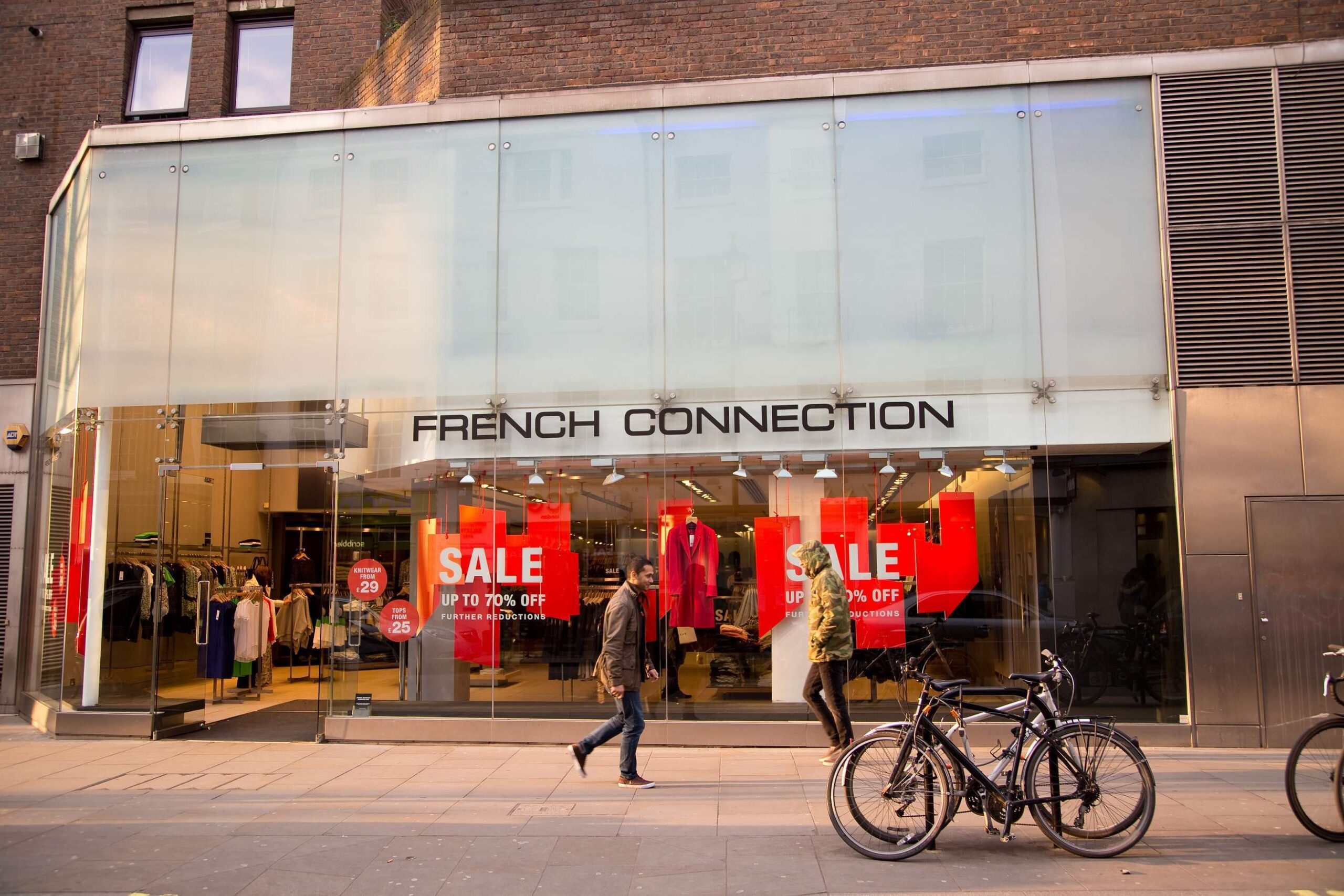
French Connection, the high-street brand beloved for its tongue-in-cheek 90s FCUK t-shirts, has posted its fifth year of losses today.
The brand has been struggling for the past few years. It never managed to hit the highs it did in the 90s and the global recession in 2008 has caused it to suffer further.
Today it was announced its pre-tax losses for the year to 31 January grew over 50 percent to £5.3m. In total, group revenue fell 6.7 percent to £153.2m.
With news last month that Sports Direct’s owner Mike Ashley has recently bought an 11 percent stake in the brand, the question is what is next for French Connection?
Where did it all go wrong?
“One of the reasons French Connection has struggled is because the brand has lost its relevance,” Andrew Busby, founder and chief executive of Retail Reflections, tells Verdict.
“When they launched their FCUK brand in 1991, everybody it seemed was wearing FCUK branded t-shirts, it was genius. They tapped into something in the psyche in the 90s and it became incredibly strong.”
How well do you really know your competitors?
Access the most comprehensive Company Profiles on the market, powered by GlobalData. Save hours of research. Gain competitive edge.

Thank you!
Your download email will arrive shortly
Not ready to buy yet? Download a free sample
We are confident about the unique quality of our Company Profiles. However, we want you to make the most beneficial decision for your business, so we offer a free sample that you can download by submitting the below form
By GlobalDataFrench Connection attempted to bring back the branded t-shirts, loved for its cheeky slogans, but it didn’t seem to bite and rescue the brand from its difficult time.
“If a brand loses its relevance, it usually means that people don’t understand it very longer,” says Busby.
The high street is a very different place from when French Connection was first launched on the scene by Stephen Marks in 1972. Nowadays, brands such as Cos, & Other Stories and Topshop Unique have all served as a place for the high street customer wanting something that looked high end but was affordable. French Connection didn’t seem to find this balance.
“The product balance is still perceived to be pretty good, but their price point, compared to other brands, has doubled.”
This is something Charlotte Pearce, associate retail analyst at GlobalData, agrees with.
“French Connection must redefine and better communicate its brand identity in order to win back shoppers lured away by rivals such as Zara, ASOS and Topshop – which all undercut on price, outperform on fashionability and have a clear differentiated offer.”
What are the investors saying?
French Connection’s institutional investors, including Gatemore Capital and Zoar Invest, called on Marks to sell the brand’s flagship store on Oxford Street, as part of a cost-cutting process. Instead, it has managed to renegotiate its rent with Selfridge’s.
Closing stores is one thing, but closing a flagship seems quite serious for a brand.
“Yes it is. London’s West End is absolutely key for many [brands]. They should have been closing stores several years ago, slimming down to maybe 50 stores. But, because they’ve left it to now, it’s almost too late,” says Busby. “If they were to sell that off, it would pretty much be the death keel. And I think then we would see a picture of French Connection becoming an online player only.”
The investment of Ashley’s Sports Direct into the brand is significant. Schroders recently sold its 9.27 percent stake in February, selling its shares at 33p each. At the time, Gatemore Capital’s managing director Liad Meidar, accused Marks of overseeing a “tremendous decline in value” at French Connection.
Sports Direct picked up a total of 11 percent to become the second-biggest controller. Ashley is known for buying brands when they are suffering, such as his recent acquisition of Agent Provocateur.
Could Ashley be making a play for French Connection?
“You have to assume he is, otherwise why bother,” says Busby. “Although it is hard to predict quite what he is going to do, it would be a reasonable assumption that he is broadening the portfolio.”
Despite the gloom, like-for-like sales rose in the UK and Europe by 4.4 percent, giving Marks a positive outlook. He said:
The noticeable improvement we have seen during the second half and into the new financial year leads me to believe that we are moving in the right direction.
It is early in the year and we have a considerable amount of work to do to take the Group back to profitability although I believe that the actions we have taken and continue to take, will go a long way to achieving that goal this year.”
“Marks needs to do something. He’s either got to find a buyer, which could be Mike Ashley, or he’s got to sort the governance out which means splitting his role, as chairman and chief executive. It’s against all accepted corporate governance best practice to have one person sitting in those two roles and the three institutional investors seem to be piling on the pressure [for change] in the last few weeks,” says Busby.
Pearce thinks selling more stores is a way for French Connection to reclaim some profits.
“The closure of nine unprofitable stores during the period has benefitted like-for-like retail sales, along with a warmer reception to its more recent ranges. Plans to close eight stores in 2017/18 will further boost like-for-like sales as its portfolio strengthens.”
We could see more stores struggling on UK high streets this year
It is a shame that we could lose another high street brand after so many recent casualties, including BHS and Austin Reed. And Busby believes this will not be the only brand we lose this year.
“It is really tough, tougher than it has ever been. I think we are going to see throughout 2017 that French Connection isn’t going to be the only brand that will struggle or disappear when we have the uncertainty of Brexit, wage costs going up and the business rates. It really is a perfect storm.”







